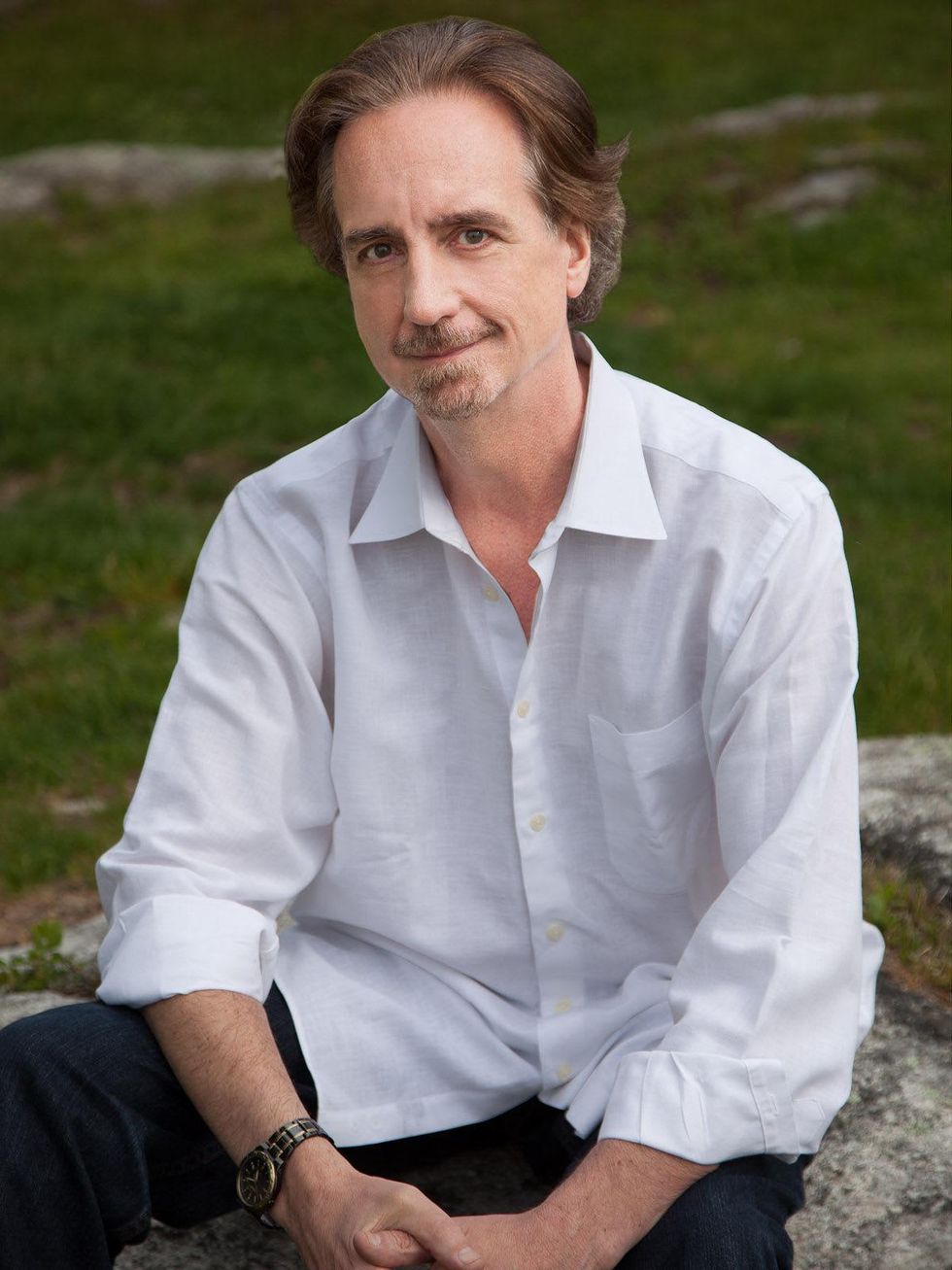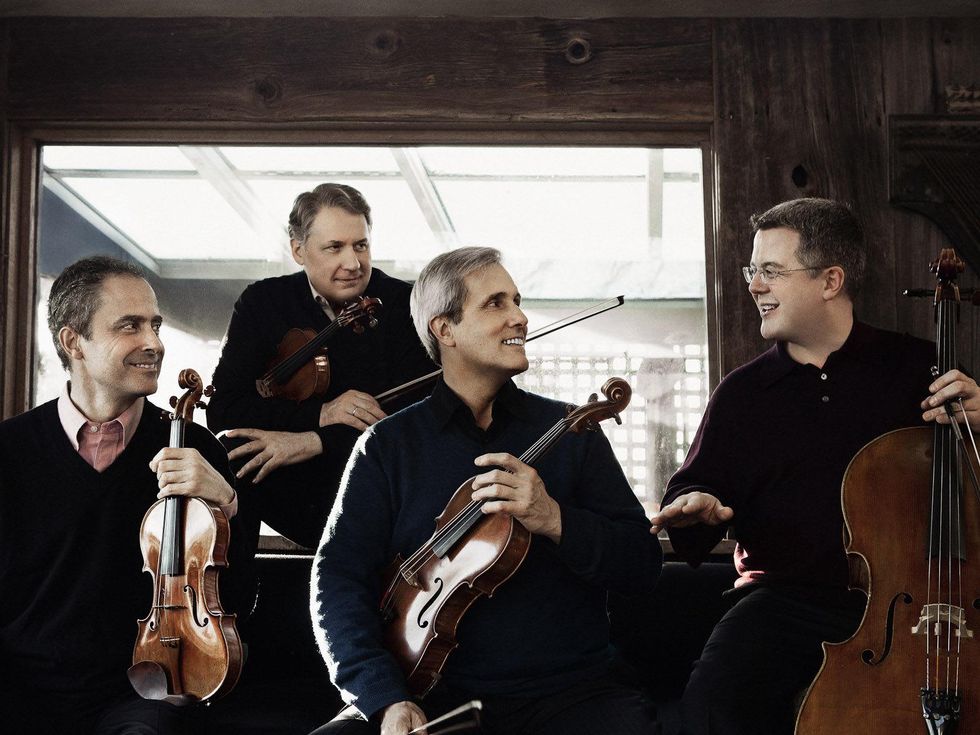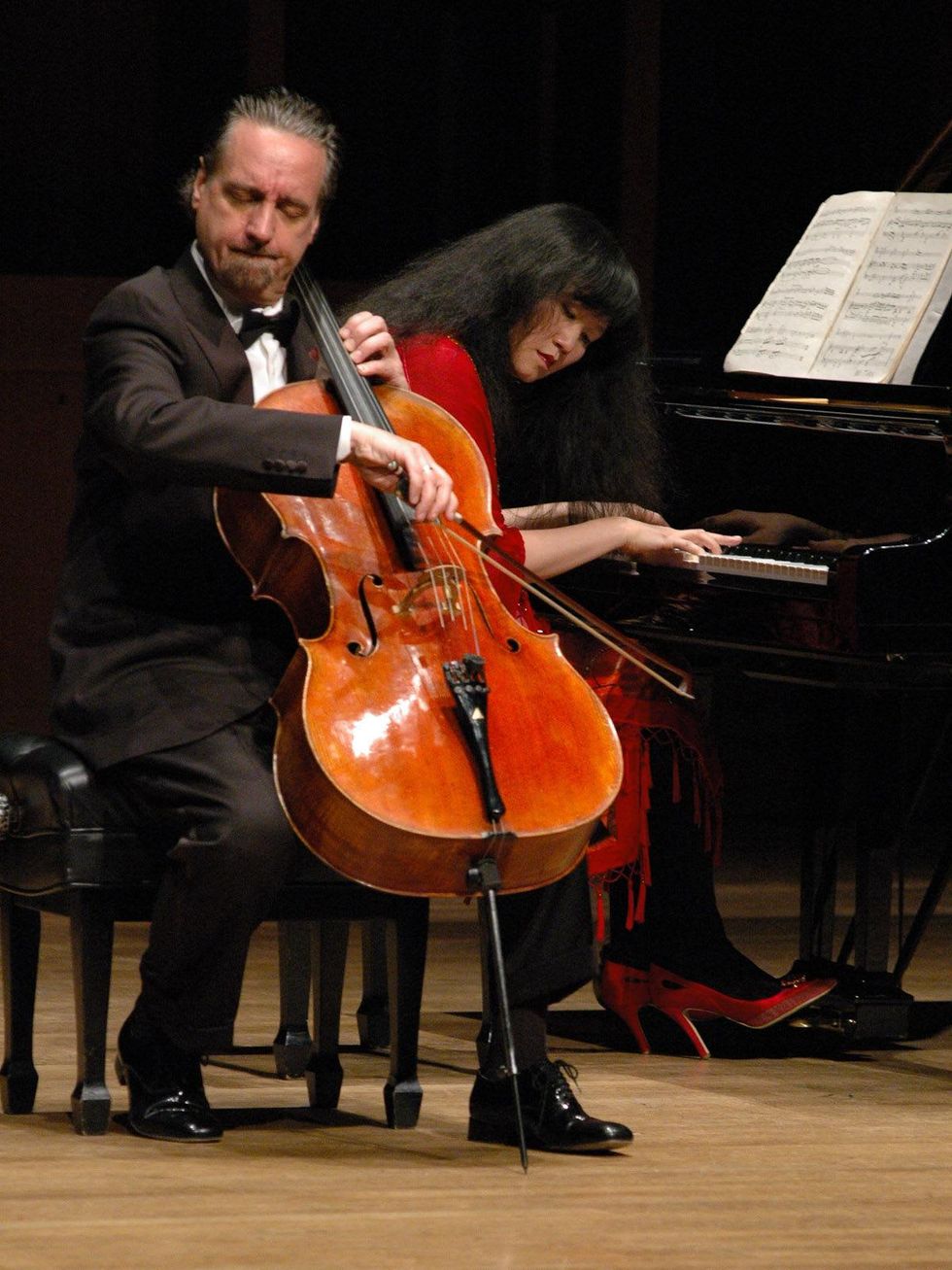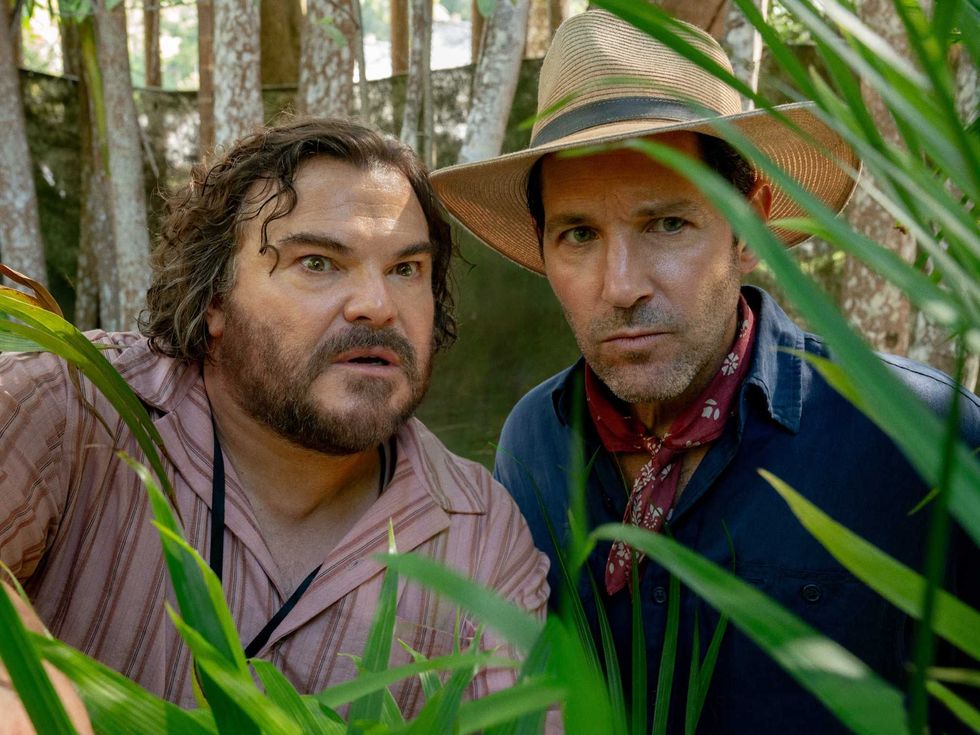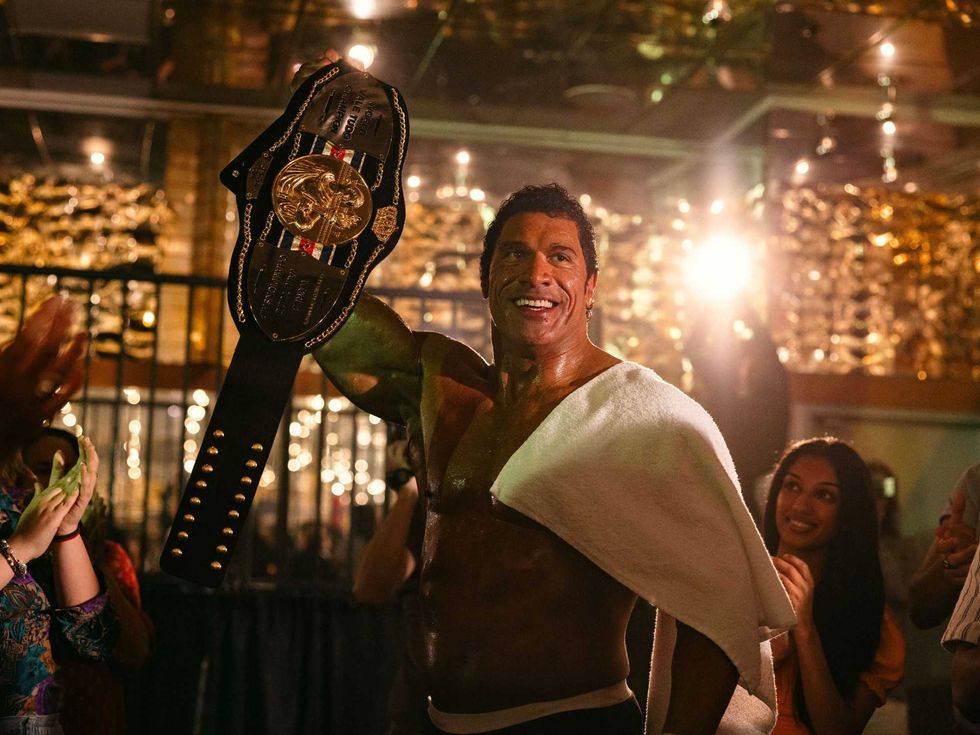The CultureMap Interview
Moving on from Emerson: Renowned cellist retiring with a Houston goodbye
When the Emerson String Quartet announced its first personnel change in 34 years of being a dominant player in the chamber music scene, die-hard junkies of the genre stopped breathing — for a moment — particularly in this city where the ensemble had presented 28 concerts in 32 years for Houston Friends of Chamber Music.
The time is here and now. The final performance of the Emerson with cellist David Finckel, set for 7:30 p.m. Tuesday at the Shepherd School of Music, will surely be a memorable musicale where the loyal, volunteer-run nonprofit will bid adieu to the foursome that has been the meat-and-potatoes of a myriad of seasons. When the quartet comes back to close next year's season in April 2014, young cellist Paul Watkins will had taken over Finckel's unifying role.
The Emerson won't be the same as 25 percent of its troupe changes. But it doesn't mean the overall Emerson aesthetic will be better or worse — it will just be different.
CultureMap chatted with Finckel by phone from his office in New York City prior to a rehearsal with his colleagues, violinists Eugene Drucker and Philip Setzer and violist Lawrence Dutton, to learn about his history with the group, his successor and his decision to move forward after 34 years sitting in the same chair.
CultureMap: You joined the Emerson String Quartet three years after it was founded. What at first attracted you to the quartet?
David Finckel: The quartet formed officially in 1976 by four students at the Juilliard School. The original cellist, Eric Wilson, was a spectacular student of Leonard Rose. After the quartet won the Naumburg Chamber Music Award in 1978 (for Mario Davidovsky's String Quartet No. 4), the quartet's managing agency kept the group busy. Eric decided that touring life wasn't for him — it's a big lifestyle change — so he decided to part ways amicably.
I joined in 1979. When I was invited to audition, I had never considered the idea of joining a quartet. Up until then, I had only performed one quartet in my whole entire life — Beethoven's String Quartet Op. 18 No. 1 — so you can imagine this felt totally out of left field. But when I sat down with the other three guys to play together, it was a magical, incredible experience — I just said yes. I had never before experienced this professional level of ensemble playing and musicianship in my life — it was too good to turn away from.
I had no idea what I was getting into.
CM: What were the early days of the Emerson String Quartet like?
Today, there seems to be a chamber music concert series everywhere you look. I'd like to think the Emerson bolstered enthusiasm for the genre around the world.
DF: Early on we enjoyed a certain sense of celebrity status. The quartet was put on the map by winning the Naumburg — I wasn't part of that — so we had management right away. We had nearly 60 concerts the first year I was with the ensemble. That very quickly mushroomed to our busiest schedule of 140 concerts per year. That was too much, so we decided to cut back some.
We were at the right place at the right time.
CM: Is it common for chamber ensembles to be popular in the U.S. and in Europe?
DF: For an American ensemble to also be popular in Europe is a big challenge. Some groups only play here, others only abroad. We enjoyed a balance, and we credit that to our American manager who chose the right person in Germany to launch our career overseas. We were introduced to Deutsche Grammophon, which allowed us to record so much repertoire. Those were the golden years of the CD, when money was around to fund recordings. Those albums fueled our popularity.
I wonder if there's a big recording label today that would have the resources to do what we did back then.
CM: Did everyone get along all the time?
DF: Quartet life is like a marriage because you make a commitment to each other. You commit to work together in civil fashion. It's like having a child. You commit to rear a child properly. We commit to do the repertoire justice. We commit to not let each other down. You commit to behavioral decency and to mutually respect one another.
Often times in a marriage, those standards fall by the wayside. We all know people who treat their spouses worse than strangers. That doesn't work in a string quartet. Any problems a chamber group faces is connected to the members not understanding the depths of what this commitment means.
CM: What is your crowning achievement during your tenure with the Emerson? What are you most proud of?
DF: I don't know how much we could be responsible for this, but I think the Emerson played a part in it. I enjoyed watching the popularity of chamber music rise all over the country. Today, there seems to be a chamber music concert series everywhere you look — and young quartets are popping up everywhere. I'd like to think the Emerson bolstered enthusiasm for the genre around the world.
This younger musician would inaugurate a perpetuating Emerson String Quartet — so the name and the legacy lives beyond the established performers.
I am also proud of our catalogue of recordings. To have had the privilege of recording the Beethoven, Bartok, Mendelssohn, Dvorak, Mozart and Shostakovich cycles, that's not something I take for granted. When I go back and listen to the CDs, I still believe in what we accomplished. I remember the work that went into them, the love we poured into each recording session. Our legacy and strength resides in them.
CM: Why retire now?
DF: I have been very busy over the past decade with other obligations, many of them connected to institutions like The Chamber Music Society of Lincoln Center, Juilliard, Music@Menlo in Atherton, Calif. and The Mendelssohn Fellowship in Korea. I need to make sure I serve those places very well, and I felt it was the right time to answer the calling of the activities of those ventures.
And there was a deserving cellist ready to pick up where I left off — a perfect hand over. This younger musician would inaugurate a perpetuating Emerson String Quartet — so the name and the legacy lives beyond the established performers.
CM: What makes Paul Watkins the right successor for your chair?
DF: He's a fantastic cellist and a great musician — on top of being a wonderful guy. It didn't matter if he had experience with chamber music or not — although he did. I had previously engaged Paul to play chamber music at Lincoln Center for my programs well before we considered him for the quartet. He was our first choice and we're very happy he said yes.
CM: How is the repertoire for the Houston Friends of Chamber Music program significant as a farewell concert?
DF: They happen all to be works of great sentiment — not by design, it just happened that way. These Romantic scores are quite wonderful. The Dvorak (Quartet in D Minor, Op. 34, No. 9) written for his mentor, Johannes Brahms, is not very well known. The Schumann (Quartet in A Major, Op. 41, No. 3) is fun — by far the most popular of his three quartets. The Grieg (String Quartet in G Minor, Op. 27) is a real piece of tone painting with wonderful imagery of Vikings, ice, storms and weather. Overall, the program is very evocative and heartfelt.
And that's how a feel about Houston audiences. Houston Friends of Chamber Music has been a very big part of my life.
CM: Any plans to return to Houston to perform with your wife, Wu Han?
DF: I'd be thrilled if I were offered an invitation to perform. I've never had the opportunity to perform with Wu Han for Houston. If that happens, I will be there.
___
Houston Friends of Chamber Music presents the Emerson String Quartet on Tuesday, 7:30 p.m., at Stude Concert Hall, Shepherd School of Music. Tickets start at $20 and can be purchased online or by calling 713-348-5400.


